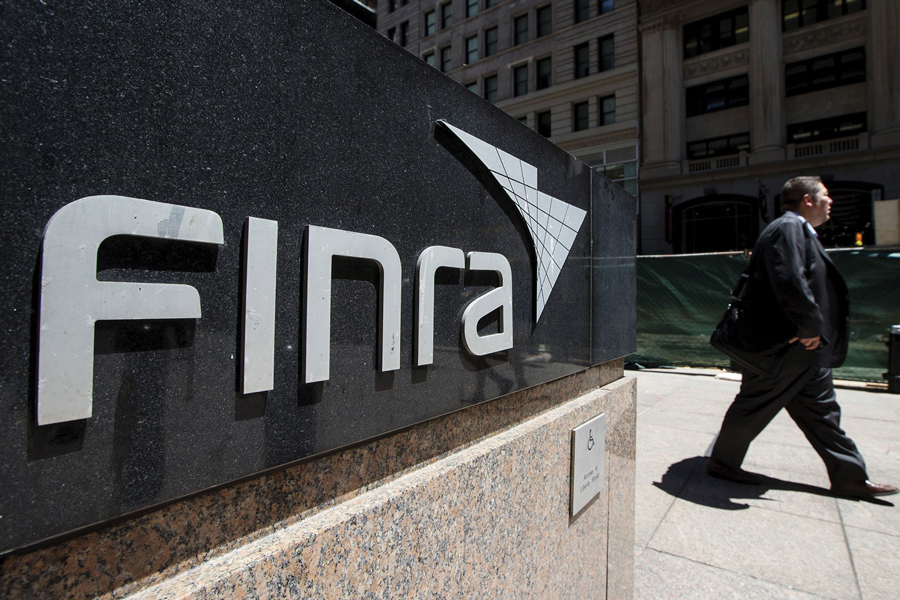

The Financial Industry Regulatory Authority (FINRA) this week suspended and fined a former broker who, in 2019, invested 96% of a client’s investable assets and net worth into a high-risk alternative investment GWG Holdings bonds, which are now practically worthless.
The former broker, Phillip C. Anderson, worked for 40 years in the securities industry, most recently in Roseville, Calif. for Kingswood Capital Partners, according to his BrokerCheck profile. He left that firm in 2023 and is no longer working as a broker, according to BrokerCheck.
In two instances of the sale of GWG bonds, Anderson’s “recommendations were unsuitable based on the customers' investment profiles,” according to FINRA, and the broker therefore violated industry rules.
Over the past decade, about 40 broker-dealers sold close to $1.6 billion in GWG L bonds, so-called because they were backed by life settlements. GWG Holdings, the issuer of the bonds, declared bankruptcy in 2022, leaving investors in the lurch, as what remains of the company works through bankruptcy court. It's not clear what value, if any, the GWG L bonds have.
When the financial advisors sold the bonds, there was no viable secondary market for the product, making them nearly untradable.
The fact that an advisor sold $96,000 of GWG bonds to a client with $100,000 to invest shocked some attorneys. According to the FINRA settlement, that was the client’s net worth, not including a primary home or residence.
“It should be literally impossible for a broker to put 96% of a client’s money in any investment,” said Adam Gana, a plaintiff’s attorney. “Firms need to do a better job of supervising their employees.”
“In every industry, businesses are responsible for supervising employees, and in the brokerage industry that’s especially important because it’s dealing with customers’ savings and retirement money,” Gana said.
“This sounds like a pretty classic case of an advisor making an unsuitable, over-concentrated recommendation for a client,” said Andrew Stoltmann, a plaintiff’s attorney. “For FINRA, this is like shooting fish in a barrel. It’s a pretty easy case for FINRA to make.”
Anderson was suspended from the securities industry for five months, fined $10,000, and will pay disgorgement of $8,280, or the total of his commissions for two sales of GWG bonds, according to the FINRA settlement, issued on Tuesday.
Anderson was also on the hook for a second sale of GWG bonds, in which Anderson sold the client $88,000 of GWG L bonds, representing 35% of his net worth.
When reached for comment, Anderson's attorney, Seth Rubinson, said, "GWG affected investors and brokers alike and Phil Anderson is glad to have this behind him so that he can move on.”
According to his BrokerCheck profile, Anderson has two settled arbitration claims against him and two open cases. For the claim of the client who invested $96,000 in GWG bonds, the settlement amount was $56,000.

Chasing productivity is one thing, but when you're cutting corners, missing details, and making mistakes, it's time to take a step back.

It is not clear how many employees will be affected, but none of the private partnership’s 20,000 financial advisors will see their jobs at risk.

The historic summer sitting saw a roughly two-thirds pass rate, with most CFP hopefuls falling in the under-40 age group.

"The greed and deception of this Ponzi scheme has resulted in the same way they have throughout history," said Daniel Brubaker, U.S. Postal Inspection Service inspector in charge.

Elsewhere, an advisor formerly with a Commonwealth affiliate firm is launching her own independent practice with an Osaic OSJ.
Stan Gregor, Chairman & CEO of Summit Financial Holdings, explores how RIAs can meet growing demand for family office-style services among mass affluent clients through tax-first planning, technology, and collaboration—positioning firms for long-term success
Chris Vizzi, Co-Founder & Partner of South Coast Investment Advisors, LLC, shares how 2025 estate tax changes—$13.99M per person—offer more than tax savings. Learn how to pass on purpose, values, and vision to unite generations and give wealth lasting meaning
